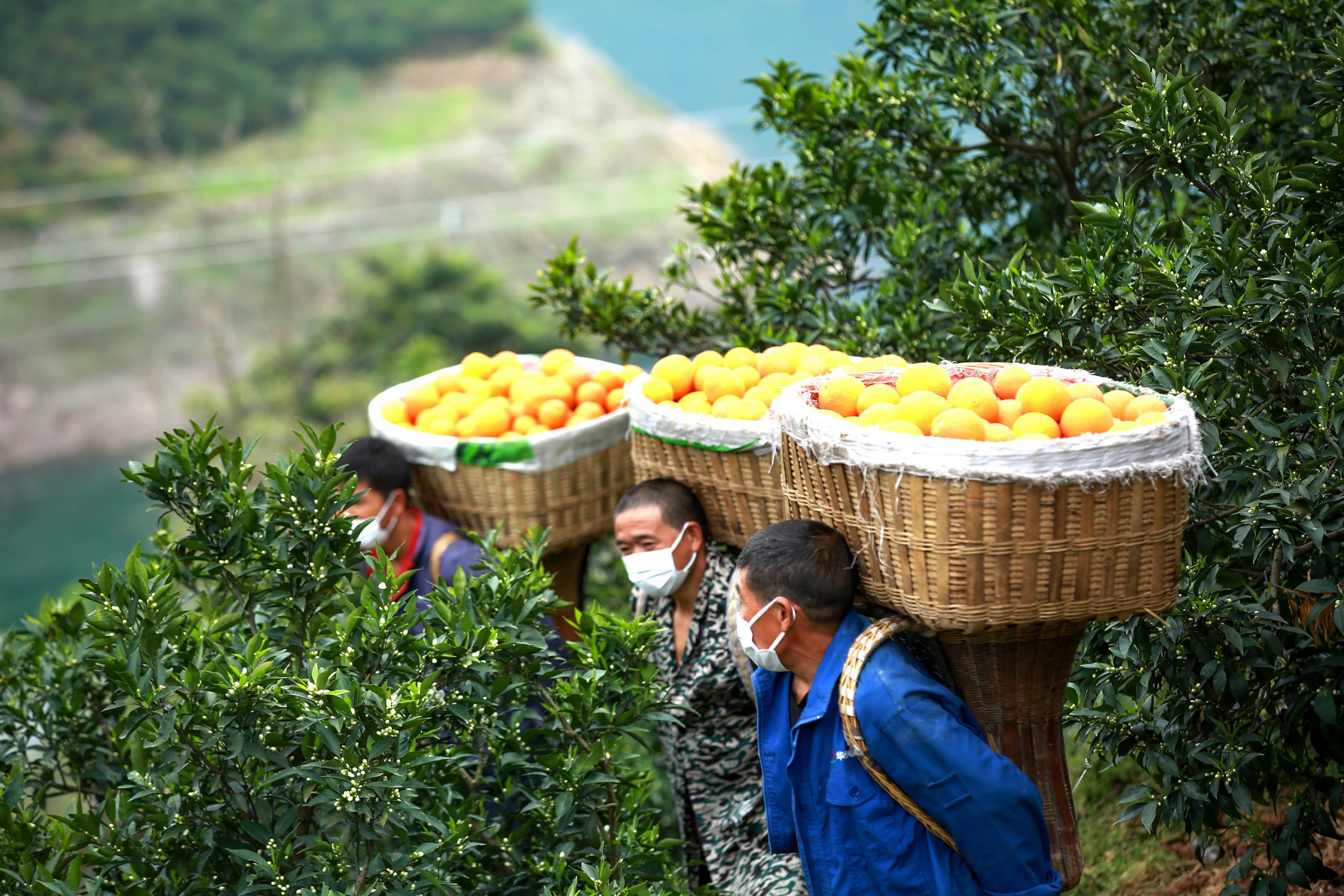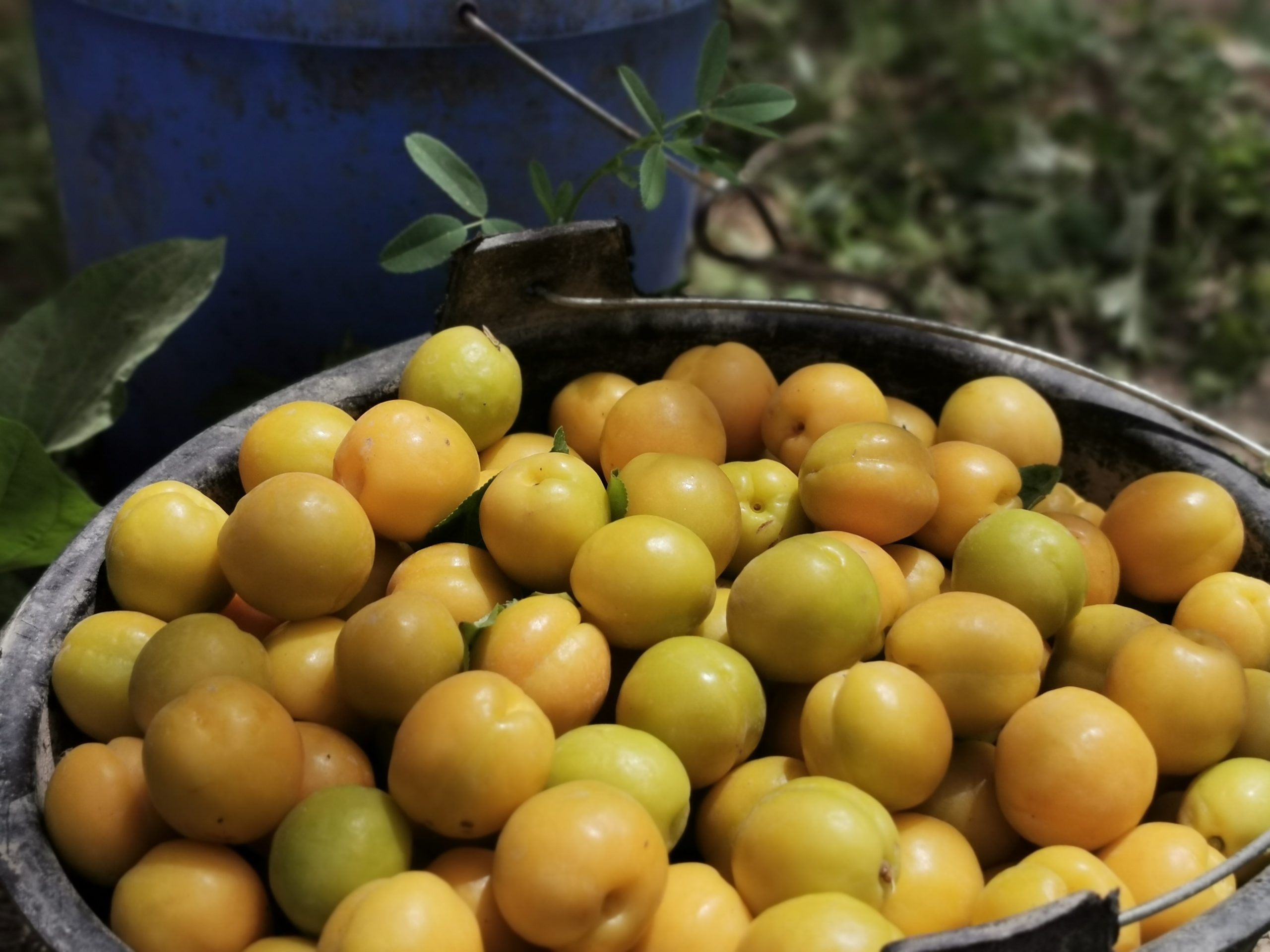
Rural farmers received a major boost during this year’s 6.18 Mid-Year Shopping Festival, selling 250,000 kilograms of fresh fruit on the first day and benefiting from innovative shopping experiences, such as an agriculture-focused interactive game that attracted 100 million consumers a day at its peak.
An annual sales event that kicked off on June 1, Alibaba’s 6.18 this year was the largest shopping festival in China since the outbreak of Covid-19. The event was a major opportunity for farmers and agricultural suppliers to recover from the virus, which for the past few months has disrupted transportation chains and made it difficult for fresh produce to reach restaurants, markets and consumers.
To help farmers make up lost ground and restore growth after a delayed season, Alibaba coordinated the most-extensive promotional push for agricultural produce during this year’s 6.18 and opened up the digital technologies in its ecosystem to create immersive and engaging experiences around farmed goods.
Gaming the Agricultural System
For the first time, Alibaba released an interactive game for 6.18 aimed at fueling interest in and growth for the agriculture sector. By last Tuesday, the game had been played by consumers more than 400 million times and contributed to RMB1 billion ($14.1 million) in sales of agricultural produce and food.
Dubbed “Ideal Life Express,” the game lived within Alibaba’s Tmall and Taobao e-commerce apps encouraged players to earn digital coins through actions – from browsing a merchant’s store to inviting their friends to play – to unlock 34 railway carriages that each represented a different Chinese city or province. The cars brought together a variety of products from those areas as well as curated livestreams and short videos that showcased the local cultures and delicacies.
More than 30,000 types of agricultural produce have been spotlighted in the game, including Chengdu’s cherries, Harbin’s rice and passion fruit from Kunming.

“The Ideal Life Express game allows users to connect with their friends, and through those interactions, access even more benefits and perks,” said Liu Bo, general manager of Tmall and Taobao marketing and operations.
Players also had a chance to win up to RMB618 in cash allowances to use during 6.18. “This motivates consumers to engage and participate, but at the same time, helps activate regional economies and offer support to the agriculture industry,” said Liu.
Agricultural Regrowth in Wake of Covid-19
The interactive game was a part of Alibaba’s Spring Thunder Initiative, which launched in April to provide relief and stimulate new demand for small businesses and merchants devasted by Covid-19. It outlined agriculture among the key sectors in need of support and announced plans to create 1,000 digitized agricultural centers across the country. During 6.18, Alibaba furthered this commitment with a new goal to help 100 agricultural clusters across China generate sales of over RMB1 billion and develop and brand their own distinctive regional specialties, such as Hangzhou’s Longwu tea and rice from the paddy fields of Heilongjiang’s Wuchang district.
“Through our Spring Thunder initiative, we aim to help agricultural clusters digitize and move their produce online with the help of Taobao and Tmall,” said Zhang Peng, head of agriculture projects under the initiative. “Taobao and Tmall offers a direct channel to sell [farmers’] crops straight to consumers’ tables for a better price, while consumers can purchase them more efficiently and at competitive price points – it’s a win-win for consumers and agricultural producers alike,” he said.
Since the outset of the pandemic, Alibaba has been working to mitigate the impact to farmers and agricultural suppliers. In early February, the company launched a Rural Support Program, which leveraged online tools such as livestreaming as well as offline capabilities to aid farmers and ensure that fresh produce could still reach consumers.
WATCH: Farmers use livestreaming to bring fresh produce to consumers
By the end of March, the company had helped food producers across China sell more than 150,000 tons of produce that would have otherwise gone to waste. Meanwhile, Taobao announced an upgrade to its Rural Livestreaming initiative and pledged to help incubate 200,000 new rural livestreamers to drive more than RMB15 billion in sales of agricultural produce.
‘Foodstreaming‘ on the Rise
Between June 1 and 14, Alibaba’s dedicated livestreaming channel Taobao Live said it hosted over 13,000 sessions of agriculture-themed livestreams that attracted more than 190 million views.
Fujian-based seafood supplier Sandugang said it had sold nearly 100,000 whole eels in a recent livestream and saw its Tmall flagship sales increase five-fold during this year’s 6.18 compared to the year before. The brand’s sales generated in the past three months have also surpassed its full-year sales from last year, per Tmall.
One of China’s most popular livestreamers Austin Li, known as “Lipstick Brother,” also hosted a livestream session on Taobao Live during 6.18 to drive sales for rural farmers in Yunnan province. Joined by celebrity guests including Chen Rong and Li Naiwen, Li recommended products including ham, puer tea, rice and rice noodles. The four-hour livestream attracted over 11.6 million views and helped generate RMB35 million in total sales.
Online video content has also brought light to the diversity of China’s agriculture and aquaculture sector. On June 9, Zhejiang-based caviar producer Kaluga Queen set a new record for the most-expensive transaction of agricultural products on Taobao Live by selling 18 kilograms of caviar and a ton of sturgeon meat for RMB618,000. According to Li Xiaomin, who operates Kaluga Queen’s Tmall flagship store, the livestreaming campaign helped bring attention not only to the brand but also to China’s high-end farming.
While livestreaming had been steadily embraced by rural farmers even before the pandemic – in 2019, Taobao Live broadcast nearly 1.6 million agriculture-related livestreams across 2,200 counties and districts – the online video tool is now seen as indispensable for the revitalization of China’s agricultural economy.
Per Taobao Live, more than 100 heads of provinces, municipalities and counties appeared on livestreamed sessions during 6.18 to promote their local produce, from Shaanxi black plums and Sichuan cherries to abalones from Fujian. The platform began its push to invite top officials to join livestreams in 2018 as a way to advocate for local farmers, with the goal of helping them build their own brands and improve income. To date, more than 2,000 mayors and magistrates have joined Taobao Live broadcasts.

The model has also been increasingly adopted by global brands and food producers outside of China. Last week, representatives from 16 countries also took to Taobao Live to promote their nations’ local goods during 6.18. Among those who participated was Thailand’s Deputy Prime Minister and Commerce Minister Jurin Laksanawisit, who introduced seasonal fruits from his country and even showed the proper way to peel a mangosteen. According to Taobao Live, close to 5,000 durians and 20,000 young coconuts were sold following Laksanawisit’s broadcast. Government representatives from South Korea, Argentina, New Zealand, Malaysia, Spain and Russia also appeared on the livestream.
According to Zhang, Alibaba’s initiatives are designed to help farmers “not only sell, but sell smart.” Whether it’s through livestreaming or interactive games and content, Zhang said, “By developing their own brands and telling the stories of food at the origin, farmers get to improve their income.”
Sign up for our newsletter to receive the latest Alibaba updates in your inbox every week.




